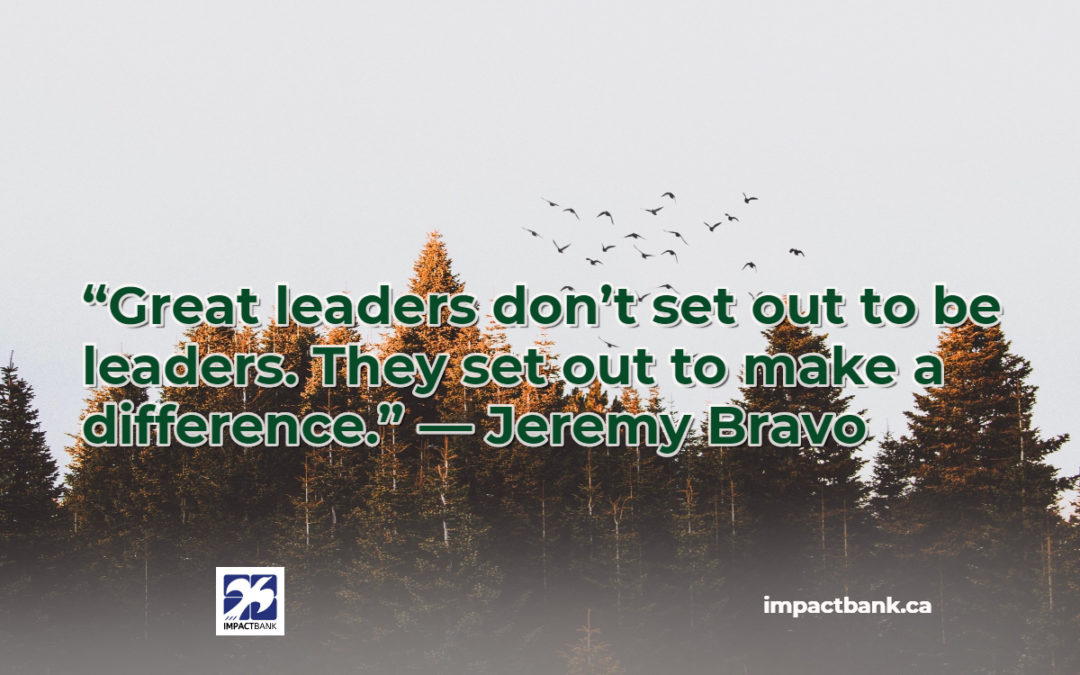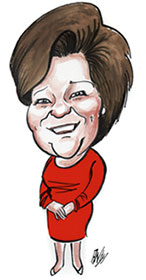Pick a lane and try not to swerve.
In uncertain times, making wise choices is more difficult than ever. It is a perfect time to practice empathy and self-compassion.
Taking stock on what our role requires of us and being aware of who is filling complimentary positions is essential to our success. Once we recognize our unique role we must focus on staying in our own lane & building strong collaborative relationships with those who help us be effective. That is the only way we will be successful together . .
“Great leaders don’t set out to be leaders. They set out to make a difference.” — Jeremy Bravo
The 2020 theme of identity continues as this week focuses on roles we play. While the quote speaks to the role of leadership, managers also seek to make an impact. Today we explore the significant role each must play.
In the Kickass Koach podcast episode dropped June 29th, I argue that the most proficient responses to the pandemic was delivered in countries with the leaders and managers working effectively together. Effective governance requires competence in both roles.
For the newsletter, I discuss the different experience of being part of a volunteer board and setting direction for a paid management team and operating in the corporate world where roles are more established and respected. Regardless, I conclude, trust is the essential ingredient to ensure leadership and management work well together.
Finally, in this post I examine the integral connection between those in management and leadership and how when considered and respected as interdependent, trust expands and performance soars.
Why Pick a Lane
It is tempting to swerve across lanes. Some describe this as micro-management, controlling behaviour. I have worked with managers who resent it deeply. Some to the point of sabotaging their own careers. Strangely when we walk together and reflect on the details it becomes clear that the manager contributed to the behaviour from the leader.
In the same, way many of the leaders I coach grow impatient with the results delivered by many of their managers. I have one client who used to fire managers frequently for what he described as failing to respect the purpose and mission of the business. I learned as an executive to seek broad counsel before firing, even a delinquent, seemingly incompetent manager, Sometimes it is not a matter of skill but of attitude. Additionally, it can be the result of mixed or unclear messages from leadership.
Pick a Land & Embrace its Purpose
Know the role and purpose of the lane you are in. Many of us have different roles that cross over from leadership to management. For example, I must manage my practice but behave as a leader with my clients. Distinctly different skill sets.
In my observation when leaders and managers do not understand or appreciate the importance of their role, conflict ensues. When we respect the value of our role we recognize the value of the other.
For example, when a leader values their role as the keeper of the big picture, they seek to know enough and be curious enough to support the work of the manager. They check out the nuances of their direction and vision for the future and openly declare their priorities and values. Managers on the other hand must value their duty to execute on the vision of the leader. They openly outline barriers and challenges that may impact their ability to deliver.
When a leader drops the ball, they fail to see around the upcoming corners, ask the necessary questions. The manager then is likely to feel unsupported and aimless even. When the manager is incompetent or poorly suited to the role of manager, their execution is flawed and their problem solving is weak.
The leader who fails to do their part effectively, will find management constantly on their heels demanding attention. This is the result of poor communication or lack of vision. This leader will complain about the neediness of their team. The manager who falls down on their responsibilities will always feel like they are in a firestorm. This manager will complain about being micro-managed.
When we embrace the purpose of our specific role, we deliver with excellence and collaborate effectively.
Pick a Lane or Learn How to Shoulder Check
There are times we need to either shift our lane. Perhaps for a different role or to put our self into the shoes of the other as a good team player. On the rare occasions where this is necessary, we benefit from learning how to shoulder check. In other words, to make the move effectively we must do the work to re-frame our perspective.
For example, a couple of years ago as Board President for a not-for-profit corporation, I realized the manager responsible for a huge project did not have the software skills to professionally design or use a spreadsheet or project management tools. The main stakeholder we jointly served was spending an exorbitant amount of money and my fellow board members agreed that this project required careful oversight. As volunteers, we needed crisp useful data to provide the leadership and decision making necessary to deliver effectively on the project.
I agreed to build and support the spreadsheet and project plan. In this case my shoulder checking meant inquiring with the manager on what data he needed to execute and outlining what the board needed in order to fast tract responsible decision. We also discussed his responsibilities to communicate with the main stakeholder. Additionally, I offered training on the use of the tools while making myself available for consultation frequently during the execution stages.
I notified the board my reservations about this manager. Not because of lack of skill but rather attitude. There was no desire to learn and grow or be challenged by the need to deliver on a job-well-done. You can’t teach this. We negotiated this project reasonably well and that manager is no longer in role. Interestingly, the manager has since referred to that $2M project as my pet project and complained that I micro-managed him.
Life is one big Experiment
So often people describe the roles in management and leadership interchangeably. Those who perform with excellence in either, are often people who have experience in the other. Just as life is an experiment, when we treat our career as one, we intentionally build our competency by learning a variety of roles. Experimenting with lateral moves expands our perspective and therefore, our influence.
Continuous learning and fresh insights are the goal of the experimental approach. What will the evidence teach us? Moreover, this approach is generative in addition to being iterative. With an experimental collaborative approach, we may find progress is faster and we go further. In collaboration we can crack this, but only together with a willingness to learn and honour the data and the stories will we arrive where we seek to go.
We may be capable of more closely monitoring and learning from our choices and decisions and build capacity to adjust our actions to meet the current situation. Then, we may influence how things unfold. There’s a difference between wanting something and making something happen. With the mindset necessary to perform under pressure we’re able to influence results more deeply. This mindset that relies on clarity, curiosity and a resilient spirit we accept no excuses, only meaningful results. Furthermore, it’s essential we learn to evaluate the risk of any action, removing the very human emotions that cloud our judgment.
Walk with me.
Together let’s examine options consciously and authentically to make choices that move us strategically toward where we want to be. Strategy is a about choices. Execution on these choices requires masterful performance. Furthermore, a well-developed process allows us to enjoy the journey far more fully
Be part of the journey in 2020.
Start by subscribing to my mailing list . Subscribers receive:
- My interactive exercise to begin reducing the impacts of stress and feelings of overwhelm will be sent.
- My newsletter with the related podcast episode will be sent weekly.
- Special offers will be available to subscribers monthly including: a random offer of a complimentary one hour coaching conversation, access to roundtable engagements and group coaching on identity and related subjects, as well as information on an initiative on which I’m collaborating: #FeMasCon.
Discover Your Preferred Lane with Bank Your Impact (BYI)
The System
The Bank Your Impact (BYI) System is about both developing and embedding self-awareness. Furthermore, the benefits of expanded resilience, connections built on understanding the impact of belonging and an ability to bolster a professional and authentic presence are foundational. Perhaps more than the other two, developing a foundational resilience is critical to with standing that which moves us into burnout.
The current system incorporates 1:1 coaching, roundtable conversations; eventually I’ll add a neuro-social learning experience (currently only available in organizational contracts but will be added to the system for individual engagement in 2021). My approach is based on the ICF (International Coaching Federation) standards. I’m meeting you (my clients) where you are, both as the coaching agreement begins, and in the moment that exists at the time of each conversation. Progress or growth is not a straight line. The ICA model is the framework for every conversation: Issue/Insight, Choice/Commitment, Action/Accountability. Over the past year I’ve been tightening the model to meet the needs of my clients.
Holding space to support my clients in:
- Developing meaningful insights
- Expanding/deepening perspective on those insights
- Building/designing a practice to try on new ways of being/seeing OR experiment for discovery
- Assessing progress, becoming agile in transfer of learning and application before developing additional insights
An organic experience
The experience is tailored around what you bring to each conversation, in my experience, there are common themes that arise including: self-awareness, mindfulness, mindset, communication, connections, and attitude. Self-awareness stands alone but is also a foundational theme. I have registered upwards of 40 sub-concepts that fit under each of these categories. Furthermore, I bring tools, skills and techniques to respond and guide our work together, informed by positive psychology, neuroscience, and management/leadership research.
Walk With Me, to Where You Want to Be
In all my blog posts in 2019, you will find this section outlines what brought me to this area of focus: supporting people in the early to middle part of their career as a #performance #coach.
Feel like you’re living someone else’s destiny?
If that’s working for you, great. If it isn’t or it starts to be a problem, reach out. I welcome a conversation.
Willing to do the work to find more meaning?
With the skills to unpack the emotions and barriers and triggers and mindset challenges with the skills in my BYI system, participants begin to see the impact in their career and finally begin to discover what matters most to them. The bonus: they begin to see a path to get there. Join me… My system is intended to be meaningful, relevant, accessible and affordable. With that in mind, there are many ways to engage with me. Below are TWO ways to start, without spending a dime.
- BOOK a complimentary exploratory 1:1 conversation 20-30 minutes.
- SUBSCRIBE to my mailing list. You’ll receive an interactive exercise that you may use to reduce and manage stress or feelings of overwhelm. PLUS each week you’ll receive my podcast and reflections in your inbox AND you’ll be invited to monthly webinars and roundtable conversations.
In closing, I love bringing learning experiences to workplaces that are interested in raising their performance and encouraging their people.
- Book me to speak at your conference or to a group in your organization. My workshops on building resilience, improving workplace outcomes through relationships, and increasing performance are big hits! In 2020 I’ve added a few workshops on gender engagement – how, by knocking off the boxes that limit us by gender we all find our capacity expands.Love


